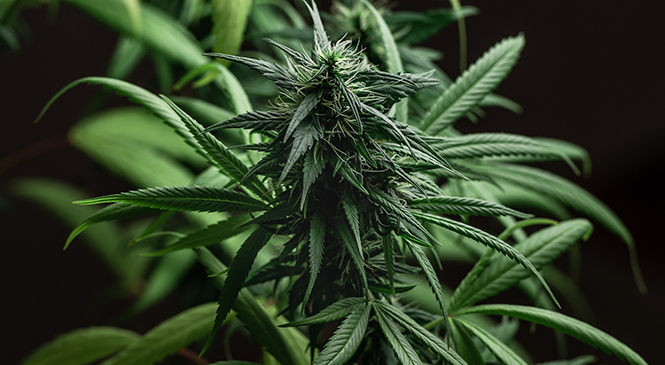Work Drug Safe
Work Drug Safe

This information is provided for educational purposes only. Reader retains full responsibility for the use of the information contained herein.
Over half of the United States currently has access to some form of legal marijuana, whether for medical or recreational purposes.1 With this ongoing trend toward legalization, many employers are wondering how their rights are impacted in terms of drug testing in the workplace.
Employee Protections in Current State Laws
Currently, more than 10 states provide specific protections for marijuana-using employees in specific situations.2 Arizona’s medical marijuana law, for example, stipulates that a registered medical marijuana using employee is not to be considered under the influence at work solely based on the presence of marijuana metabolites or components that appear in insufficient concentration to cause impairment. Additionally, employers may not discriminate or otherwise penalize an employee/applicant based on their status as a medical marijuana cardholder or their marijuana positive drug test unless the patient used, possessed, or was impaired by marijuana on the premises of the place of employment or during the hours of employment.3
While the majority of state laws only provide protections for medical marijuana users in the workplace, there is a rising trend to provide protections for recreational marijuana users as well. Nevada’s law (effective as of January 2020), for example, prohibits employers from refusing to hire applicants because of a positive pre-employment drug test for marijuana metabolites. The law includes a safety-sensitive carve-out for a number of specific jobs, however, applicants are not required to prove that their marijuana use was due to medicinal reasons.4
Trends in Legislation in 2020
Already, more than 40 bills have been proposed or carried over to the 2020 legislative season that provide some sort of protection to marijuana-using employees. While the majority of these bills only provide protections for medical marijuana users, there are a number that take it a step further and limit employer rights in terms of testing for recreational marijuana.
The Massachusetts legislature, for example, has proposed three bills that would provide protections for recreational users in the state. Similarly, these bills place restrictions on how employers respond to employee’s use of marijuana and its metabolites:
This type of proposed legislative language is becoming more common. While proposing restrictions on employers, conditions of protected marijuana use are clearly defined. Use must be outside of work, employees cannot be impaired while performing required tasks of employment, etc. It is likely that as the year progresses, we will see more bills that provide workplace protections for marijuana-using employees, including bills that would restrict drug testing..
What Does This All Mean for Employers?
Clearly, drug testing technology makes it possible to detect drugs in a person’s system. Additionally, supervisors can be trained to recognize the signs and symptoms of substance abuse to indicate that an individual is “under the influence.” However, a positive drug test result cannot be used to definitively declare that a person is “impaired.”
A number of existing state laws, and much of the proposed legislation pertaining to workplace marijuana testing, refers to “impairment” to help bolster the claim that drug testing, as it stands currently, is unfair because it cannot prove that an individual is actually impaired.
Employers should avoid using the words “impair” or “impairment” in their company drug testing policy and instead prohibit employers from being at work while “under the influence.” A positive drug test result can be included among the various ways in which someone can be considered under the influence. Employers should consult state laws carefully to determine what is permitted in their policy.
To recap, employers should do the following:
Conclusion
The landscape of workplace drug and alcohol testing is changing quickly and will likely continue changing as the legalization train continues barreling forward. With many states looking to add workplace protections for marijuana-using employees, employers will likely be faced with the challenge of re-evaluating their current drug and alcohol testing programs to determine how to best continue testing for marijuana while complying with all applicable state laws
Drug Safe Workplace
©2025 Abbott. All rights reserved. Unless otherwise specified, all product and service names appearing in this Internet site are trademarks owned by or licensed to Abbott, its subsidiaries or affiliates. No use of any Abbott trademark, trade name, or trade dress in this site may be made without the prior written authorization of Abbott, except to identify the product or services of the company.
This website is governed by applicable U.S. laws and governmental regulations. The products and information contained herewith may not be accessible in all countries, and Abbott takes no responsibility for such information which may not comply with local country legal process, regulation, registration and usage.
Your use of this website and the information contained herein is subject to our Website Terms and Conditions and Privacy Policy.
Abbott - A Global Leader in Toxicology.
Links which take you out of Abbott worldwide websites are not under the control of Abbott, and Abbott is not responsible for the contents of any such site or any further links from such site. Abbott is providing these links to you only as a convenience, and the inclusion of any link does not imply endorsement of the linked site by Abbott. The website that you have requested also may not be optimised for your screen size.